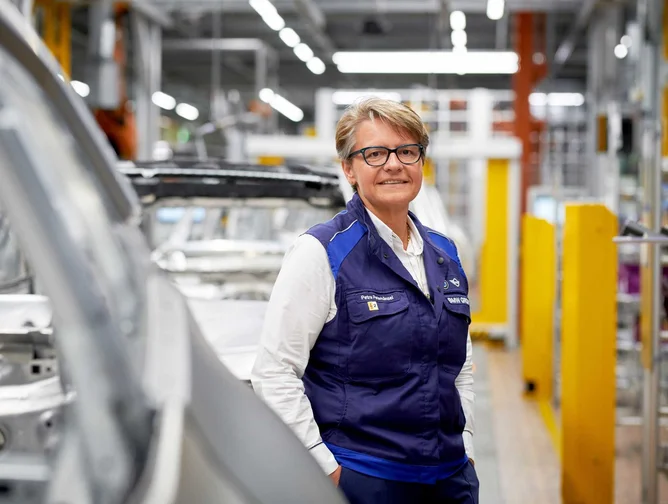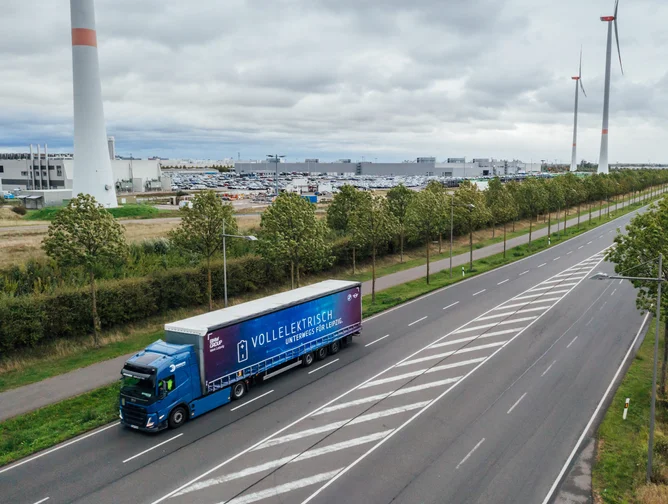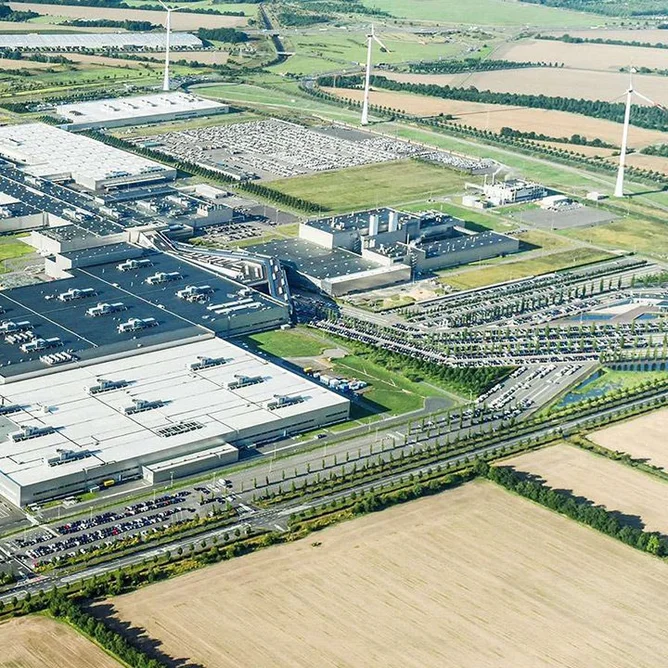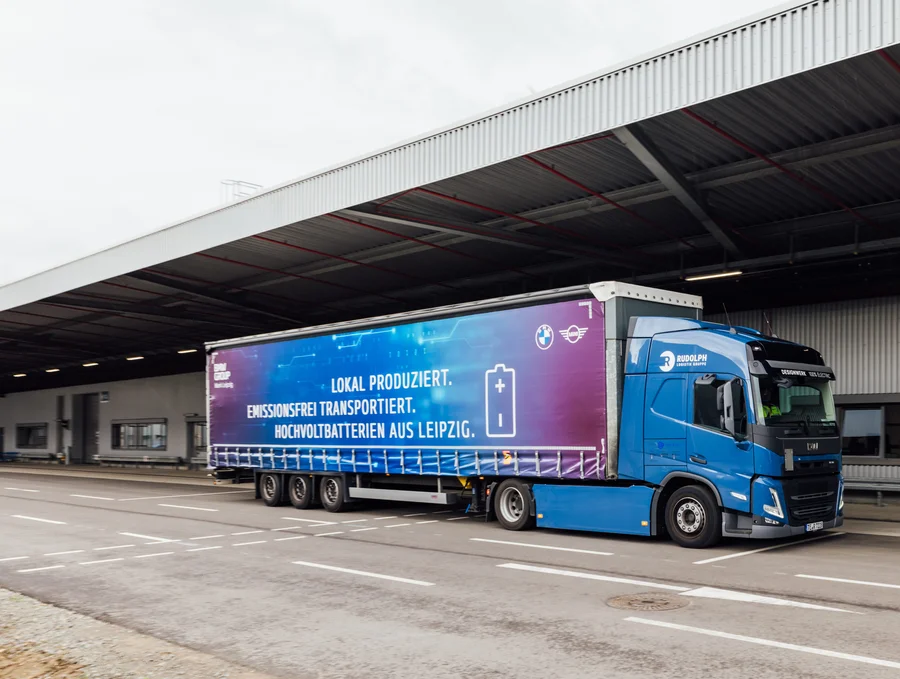BMW Plant Leipzig deploys electric trucks for battery part transport, cutting CO₂ emissions by 9 tonnes annually.
In a strategic move toward more sustainable logistics, BMW Group Plant Leipzig has introduced two fully electric trucks to transport parts for high-voltage battery production.
The initiative marks a significant step in reducing carbon emissions in the manufacturing process of electric components and reflects BMW’s broader commitment to sustainable transportation and production methods.
The electric trucks are expected to save approximately nine tonnes of CO₂ annually, reinforcing BMW’s goal to minimise its carbon footprint across its supply chain.
Efficient and emission-free transport for EV components
The newly introduced electric trucks cover an eight-kilometre round trip between BMW’s logistics centre and its high-voltage battery production halls, completing up to 12 trips per day. This equates to nearly 100 kilometres per truck daily—miles covered without producing local emissions.
As electric trucks operate quietly, they contribute to lower emissions and reduce noise pollution, an important consideration for urban and industrial environments.

Petra Peterhänsel, Plant Director, BMW, points out the efficiency of transporting parts between production facilities, stating: “Electric trucks are the perfect solution for shorter distances like this.”
“We are delighted to undertake this journey with our longstanding logistics partner, the Rudolph Logistik Gruppe. The transition to electromobility and sustainable production affects not only our BMW and MINI cars but also our production methods and supply chains.”
Integral role in BMW’s high-voltage battery production
BMW Group Plant Leipzig, a pioneer in e-component production since 2021, has taken on the entire high-voltage battery production process as of early 2024. It involves several stages: cell coating, module production and battery assembly.
The plant currently operates five cell coating lines, three module production lines and two battery assembly lines, with a team of approximately 1,000 employees dedicated to producing high-voltage batteries. These battery power models, like the MINI Countryman Electric, BMW iX1, BMW i4, BMW i5 and BMW iX, meet the high demand for electric mobility.
To accommodate the shift, BMW converted existing assembly halls, formerly used for the BMW i3 and BMW i8, into advanced production spaces for high-voltage battery manufacturing.
The transformation has added about 150,000 square metres of space to the plant. With an annual output capacity of up to 300,000 batteries, BMW has invested over 900 million euros in this transition.

Enhanced performance and sustainability with Designwerk electric trucks
The two electric trucks, manufactured by Designwerk, are powered by lithium iron phosphate (LFP) battery systems, chosen for their high efficiency and environmental benefits.
These trucks feature four electric drives delivering 610 horsepower, which makes them three times more energy-efficient than diesel trucks on comparable routes. They emit no local pollutants such as soot, nitrogen oxides, or carbon dioxide, contributing to cleaner air and a healthier environment.
According to Designwerk, the electric trucks are notably quieter, emitting about five decibels less noise than diesel-powered trucks operating at low speeds.
Charging the trucks is streamlined to fit into drivers’ breaks, with each vehicle’s 340 kWh battery requiring approximately 1.5 hours to charge to 80% capacity. The efficiency ensures the trucks can operate around the clock, supporting BMW’s continuous production schedule.

A broad approach to green logistics
The implementation of electric trucks at BMW Group Plant Leipzig is part of BMW’s Green Transport Logistics Project, which aims to reduce emissions across BMW’s global production and sales network. In addition to EVs, the project includes testing various eco-friendly technologies and fuels. For instance, at its Munich site, BMW has expanded the use of biofuels such as HVO100, derived from residual and waste materials. The company has also trialled bio-LNG in other areas and is actively exploring hydrogen as a fuel source through initiatives like the H2Haul and HyCET research projects.
The multi-faceted approach is designed to help BMW achieve its ambitious goal of a 40% reduction in CO₂ emissions across the entire vehicle lifecycle by 2030, compared to 2019.
Sustainable automotive logistics
BMW Group Plant Leipzig’s adoption of electric trucks reflects the company’s strong commitment to sustainable logistics and innovation in vehicle production.
By reducing emissions in component transport, BMW is setting a new standard in the automotive industry, emphasising that sustainability is integral to the vehicles it produces and the methods it employs in manufacturing and logistics.
The transition is an essential milestone in BMW’s ongoing journey to meet the rising demand for environmentally friendly transportation solutions while supporting a cleaner, quieter and more sustainable future in the automotive sector.



